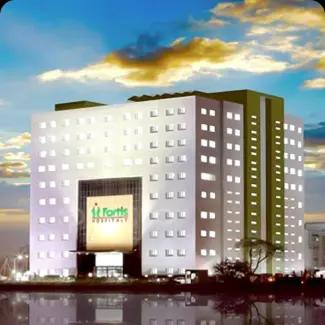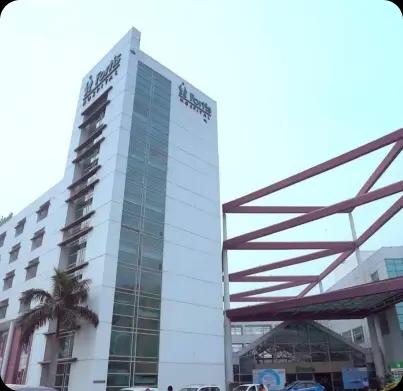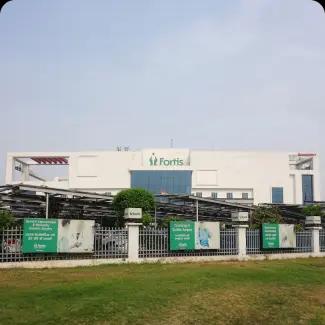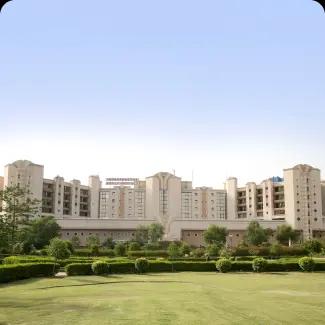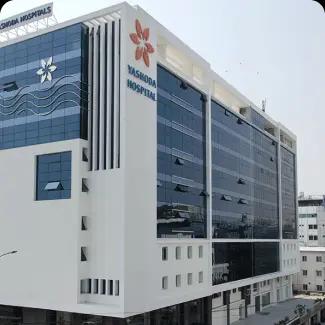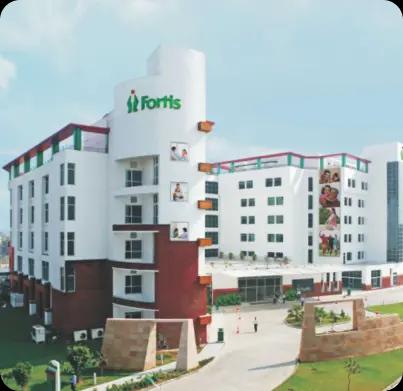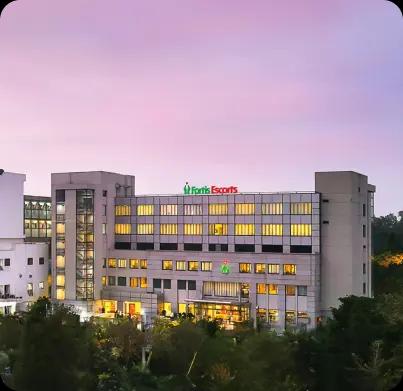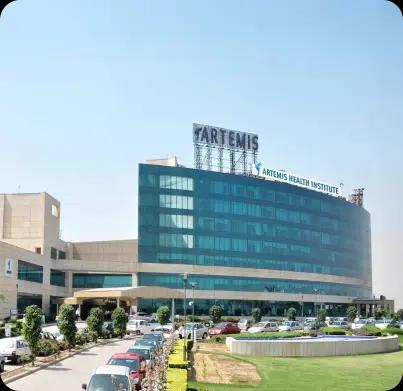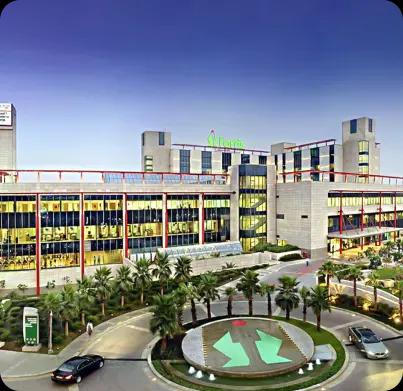
Cystectomy
Cystectomy is a surgical procedure to remove part or all of the bladder, primarily used for treating bladder cancer. It can be partial, targeting only the cancerous area, or radical, removing the entire bladder along with nearby lymph nodes and organs if required. Following cystectomy, patients may undergo urinary diversion surgery to establish an alternative route for urine elimination.
Easy Medical Visa Approvals
Travel Booking Assistance
Comprehensive Treatment Plans
Multi-Language Support
Cystectomy is a surgical procedure to remove part or all of the bladder, primarily used for treating bladder cancer. It can be partial, targeting only the cancerous area, or radical, removing the entire bladder along with nearby lymph nodes and organs if required. Following cystectomy, patients may undergo urinary diversion surgery to establish an alternative route for urine elimination.
Symptoms Of Cystectomy
Symptoms
Types of conditions
There are three main types of Cystectomy
Partial Cystectomy
Radical Cystectomy
Robot-assisted Cystectomy
Partial Cystectomy
- Removes only the cancerous part of the bladder while preserving the rest.
- Suitable for patients with early-stage bladder cancer that hasn't spread extensively.
SYMPTOMS OF CYSTECTOMY
Blood in urine - Presence of blood in the urine, known as hematuria, can indicate various underlying conditions such as urinary tract infections, kidney stones, or bladder cancer.
Frequent urge to urinate - Feeling the need to urinate frequently, even when the bladder is not full, may be a sign of conditions like urinary tract infections, overactive bladder, or interstitial cystitis.
Burning sensation during urination - Experiencing a burning or painful sensation while urinating is often a symptom of urinary tract infections, sexually transmitted infections, or irritation of the urethra.
Lower abdominal or pelvic pain - Pain in the lower abdomen or pelvic region can result from conditions such as urinary tract infections, bladder infections, kidney stones, or menstrual cramps.
DIAGNOSIS
Cystoscopy with Biopsy - A procedure where a small tube (cystoscope) is inserted through the urethra to examine the bladder's interior for abnormalities.A biopsy is then taken in the same procedure to assess the grade of cancer. This can be therapeutic for smaller cancers.
Urine cytology- Examination of urine under a microscope to detect cancer cells.
Imaging Tests- CT urogram, retrograde pyelogram, CT scan, MRI, PET scan, bone scan, and chest X-ray are used to visualize the urinary tract and assess cancer spread to lymph nodes or other areas of the body.
TREATMENTS
Treatment options for bladder cancer include:
-
Partial cystectomy- Removal of only a portion of the bladder.
-
Radiotherapy- Using high-energy radiation to destroy cancer cells.
-
Chemotherapy- Medications to kill cancer cells or prevent their growth.
-
Combination therapy- A mix of radiotherapy and chemotherapy for enhanced effectiveness.
-
Bladder preservation techniques to avoid complete removal of the bladder.
Treatment usually entails a combination of these treatments. Your doctor will discuss with you and provide options based on your diagnosis.
RISK FACTORS
Factors that can heighten the risk of bladder cancer include:
- Smoking
- Advancing age > 55 years
- Men are at a higher risk
- Certain chemicals found in dyes, rubber, textiles, and paints, as well as arsenic, can increase the risk of bladder cancer
- Cyclophosphamide and pelvic radiation therapy for other cancers can increase bladder cancer risk
- Chronic bladder inflammation by long-term catheter use or the parasitic infection
- Personal or family cancer history
PREPARIG FOR SURGERY
- Thorough discussions with surgeon, anesthesiologist, and healthcare team to assess health status and surgery impact.
- Factors considered: medical history, drug allergies, previous anesthesia reactions, conditions like obstructive sleep apnea.
- Disclose medication, supplement, alcohol, tobacco, recreational drug, and caffeine use.
- Smoking cessation strategies discussed if applicable due to impact on recovery.
- Surgeons may recommend a clear liquid diet for 1-2 days prior to surgery.
- There will be instructions to refrain from eating/drinking after midnight before surgery.
- They will provide guidance on medication adjustments before surgery.
RECOVERY
- Side effects after bladder removal surgery: sore throat, shivering, sleepiness, dry mouth, nausea, vomiting.
- Recovery time: several weeks to months, partial cystectomy patients recover faster.
- Healthcare teams encourage walking to promote healing and prevent complications.
- Recovery slower after radical cystectomy, extending hospital stays.
- Activity limitation for six weeks post-surgery.
- Follow-up appointments scheduled to monitor healing, urinary tract drainage, electrolyte imbalances.
- Managing an ostomy bag: emptying the bag, using mild soap, changing the pouch, applying ostomy powder.
Your journey to good health begins here

Accredited Hospitals
Nationally accredited hospitals for high-quality care

Multi-language Support
Convey your needs in the language you're most comfortable in

Travel Booking Assistance
Seamless booking assistance for your healthcare journey

Personalised Treatment Plans
A treatment journey tailored to all your preferences and needs

Unparalleled Hospitality
Experience exceptional hospitality during your stay

Easy Medical Visa Approvals
Dedicated assistance for medical visa requirements
Plan your healthcare journey with Karetrip!
India’s Best Hospitals are Partnered With Karetrip
Access World-Class facilities from top Hospitals across India
Consult with India’s most experienced doctors
Experience premium care from India’s leading specialists

Dr. C Chinnaswami
Urologist and Renal Transplant Specialist
46+ Years Of Experience

Dr. Rajinder Yadav
Urologist
44+ Years Of Experience
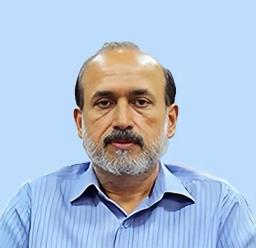
Dr. Reji K Varghese
Urologist
17+ Years Of Experience

Dr. Amitava Mukherjee
Urologist
21+ Years Of Experience

Dr. Anup Gulati
Urologist
25+ Years Of Experience

Dr. George P Abraham
Urologist and Renal Transplant Specialist
33+ Years Of Experience
Cost Estimation
Learn about the expenses involved in the procedure and what factors affect them.

- The cost of cystectomy in India ranges from ₹15,000 to ₹1,00,000, with an average of ₹60,000.
- Factors affecting the cost include consultation fees, diagnostic tests, type of surgery, admission fees, patient's medical condition and age, type of hospital, room selection, and location.
The average cost of the Cystectomy in India is around ₹15,000 to ₹1,00,000.

₹1,00,000
High Cost
₹60,000
Average Cost
₹15,000
Low Cost
The LIST of AVERAGE COST of the Cystectomy across TOP 6 cities in India in Indian Rupee (INR) is as follows :
City
Lowest Cost
Average Cost
Highest Cost
Mumbai
₹ 50,000
₹ 60,000
₹ 70,000
Delhi
₹ 80,000
₹1,00,000
₹ 1,03,000
Chennai
₹ 45,000
₹ 50,000
₹ 75,000
Kochi
₹ 25,000
₹ 30,000
₹ 50,000
Kolkata
₹ 15,000
₹ 50,000
₹ 1,00,000
Hyderbad
₹ 70,000
₹ 75,000
₹ 88,000
Commonly Asked Questions
Is a cystectomy major surgery?
Yes, a cystectomy is major surgery as it involves the removal of all or part of your urinary bladder.
Can a person live without a bladder?
Yes, it is possible to live without a bladder, but you will need a new reservoir to hold urine produced by your kidneys. Adjustments may be needed, but many activities can still be performed post-surgery.
How long is a hospital stay for bladder removal?
Hospital stay duration varies depending on the type of cystectomy. Typically, for laparoscopic or robotic cystectomy, it's at least one day, while for open cystectomy, it can be up to a week.
Are there alternatives to a radical cystectomy?
Yes, alternatives like bladder preservation therapy using chemotherapy, radiotherapy, or a combination may be available. Discuss with your doctor to explore the best treatment option for you.
What risks are associated with a radical cystectomy?
Risks include bleeding, kidney issues, infection, and complications from urinary diversion due to the major nature of the surgery.

Do you still have a query?


"I had a successful surgery at Fortis Escorts Hospital, and it was all thanks to Karetrip's help in finding the right hospital for me. The entire process was smooth and stress-free, with Karetrip handling all the arrangements and answering any questions I had. The medical team at the hospital was outstanding, and the facilities were top-notch. I highly recommend Karetrip to anyone looking for a tension-free healthcare experience."
Read MoreFatima
Chattogram


"Thanks to Karetrip, I got connected with MAX Hospital in New Delhi. The team guided me through every step – from finding the right doctor to handling travel and visas. They made a daunting process feel like a breeze. The care I received at MAX Hospital was outstanding, and I can't thank Karetrip enough for making it possible. They truly put patients first and go the extra mile to ensure a smooth healthcare journey. I'm grateful beyond words!"
Read MoreHasan
Dhaka


"At first, I was unsure about having a medical procedure done in a foreign country. However, Karetrip's team at Indraprastha Apollo Hospital made me feel much better. The hospital was very clean, modern, and had everything they needed to help me. The staff were very kind and did everything they could to make me feel comfortable. I'm really happy with how my treatment turned out, and I appreciate Karetrip for making it easy and stress-free."
Read MoreImran
Sylhet
 Google Reviews4.9/5
Google Reviews4.9/5




I had a successful surgery at Fortis Escorts Hospital, and it was all thanks to Karetrip's help in finding the right hospital for me. The entire process was smooth and stress-free, with Karetrip handling all the arrangements and answering any questions I had. The medical team at the hospital was outstanding, and the facilities were top-notch. I highly recommend Karetrip to anyone looking for a tension-free healthcare experience.
Fatima
Chattogram
 Google Reviews4.9/5
Google Reviews4.9/5




